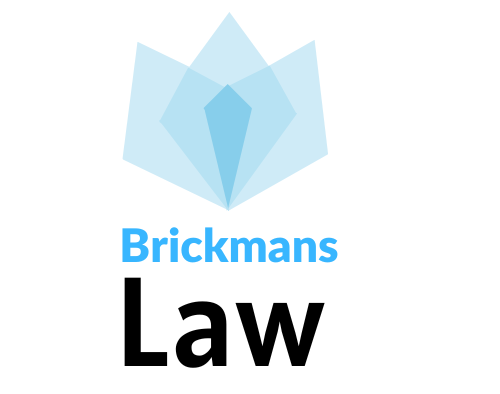Legal Assessment of Russia’s Annexation of Crimea and the Way Forward
By Moshood Olajide
Veneration for the territorial integrity of states is a foundational standard rule in international law. This norm is enshrined in international instruments – ranging from the resolutions of the United Nations and regional and bilateral agreements to international treaties. The above explanation is the antithesis of the ongoing power flexing between Russia, Ukraine, and the West where the threat of possible invasion looms daily.
Apparently, global power players are uncertain whether if Vladimir Putin’s request is granted, he would not subsequently demand for more. It would appear that there is a conscious effort to avoid making the mistake of the second world war where despite appeasement policies of the West towards the German Chancellor, Adolf Hitler, he always wanted more leading him to send troops to occupy Rhineland in 1936 in violation of the treaty of Versailles, to reunify Austria with Germany in a bloodless forceful measure in 1938 to achieve expansive territory, and finally invade Czechoslovakia and Poland in 1939, which ignited the second world war. From a historical standpoint, the West has definitely learned from this, prompting the United States to deploy troops to Germany, Poland and Romania to assure swift military intervention in case of possible Russian invasion of Ukraine.
Origin of the Crisis
The origin of the crisis can be traced to 2014 when the Ukrainian President loyal to Russia was swept out of power by popular revolution with Viktor Yanukovych fleeing to Moscow for a protective shield. Russia in response annexed Crimea – a regional part of Ukraine, but historically and culturally aligned to Russia with a population of more than 55% ethnic speaking Russian.
It is important to assess the legality of Russia’s annexation of Crimea in 2014. First of all, the Soviet Union under Nikita Khrushehev in 1954 had transferred Crimea to Ukraine in compliance with the resolution of the Politburo of the Communist party – therefore, the initial transfer in 1954 was legal, peaceful and followed the processes of uti possidetis under international law. The subsequent annexation by Russia was therefore illegal and in clear violation of the 1975 Helsinki Final Act and the 1990 Charter of Paris for a new Europe.
Russia’s annexation of Crimea on the basis of historical and cultural affinity is also a nullity under international law. In the Land and Maritime Boundary case between (Cameroon v. Nigeria: Equatorial Guinea intervening), Judgment, 1. C. J. Reports 2002, p. 303, the ICJ firmly held that: Nigeria’s historical consolidation as claimed by its legal representatives could not in any event give Nigeria title over Bakassi. The court further held that Nigeria, accepting to be bound by the 1975 Maroua Declaration and the 1913 Anglo – German Agreement had recognized Cameroon sovereignty over Bakassi. Therefore, by the application of this principle and authority, an attempt at geographical reconfiguration by Russia through the annexation of Crimea does not meet the requirement of international law.
Back to Ukraine, while Russia has every right to express security concerns over NATO’S alleged encirclement of Eastern Europe, it begs the question whether Putin’s action in mobilizing close to 100, 000 troops to Ukraine’s border is tenable considering Kiev has not even fired a single shot. Again, international law is clear on situations like this. The charter of the United Nations, (paragraph 4 of article 2) is against the use of force except in the case of legitimate self–defense (Article 51). The clear interpretation of this is that a country engulfed in any of this scenario, must have a choice, not to use force but to report to the Security council of the United Nations or the International court of justice (ICJ).
Also, requests for the non–admission of a sovereign country like Ukraine and some Eastern European countries into a security alliance meant to protect their territory is unfounded on a legal basis.
The question now is: What is the way out? Diplomacy remains the way out and it is important to refocus attention on the economic and democratic prosperity of Eastern Europe in de-escalating tensions. Poland is presently faced with several disagreements with the EU; Belarus is being ruled by a long-time dictator – Alexander Lukashenko since 1994; Hungary’s democracy and human rights record is nothing to write home about while as promising as Ukraine seems to look within geopolitical circles, endemic corruption amongst the ruling oligarchs continues to plague the country.
Finally, in finding a compromise towards de-escalation of tension legally, it is imperative to have a fresh 5-party talk between the US, Russia, China, France, and the United Kingdom, being the 5 permanent members of the United Nations Security Council. These countries need to have a honest conversation about the 1990 unwritten agreement between the Soviet Union under Mikhail Gorbachev and the United States under Goerge Bush that NATO will never expand its membership to Eastern Europe, and formalize a legal treaty binding on all parties about the future of NATO. The treaty should address the current membership of NATO and modalities for future expansion.
While Russia may feel betrayed about the disregard for the 1990 unwritten agreement, which is the major fulcrum of the ongoing rising tension as both Russia and China have expressed open opposition to any further expansion of NATO, it is clear that Russia’s annexation of Crimea and resort to the use of force remain untenable under international law.
Moshood Olajide is of the Faculty of Law, Obafemi Awolowo University, Ile – Ife, Osun – State.
The post Legal Assessment of Russia’s Annexation of Crimea and the Way Forward appeared first on Lawyard.
